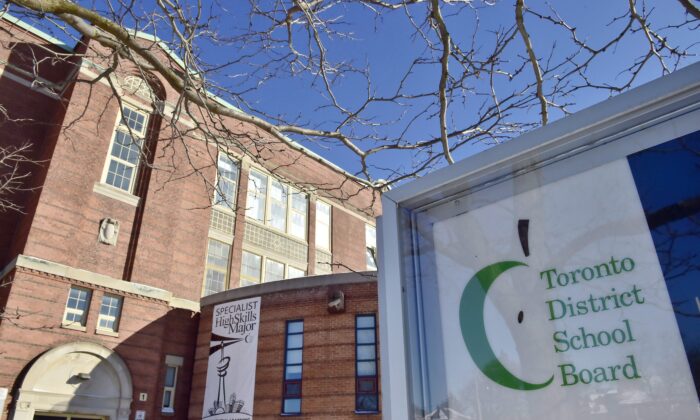Commentary
Canada’s largest school board is on the lookout for a new leader as Colleen Russell-Rawlins, the director of education of the Toronto District School Board (TDSB), prepares to
retire this fall.
Describing her time in office as controversial would be an understatement. During her three-year tenure, the TDSB intensified its focus on diversity, equity, and inclusion (DEI) policies, leading to unfortunate outcomes. The tragic death of former TDSB principal
Richard Bilkszto last year, after facing relentless harassment for challenging DEI beliefs, is a stark example.
The negative impacts of DEI initiatives extend further. Two years ago, TDSB decided to
eliminate its merit-based admissions policy at specialized arts and sports schools in the name of “equity,” causing dissatisfaction among parents. After years of building up these specialized institutions, TDSB is now dismantling them.
In addition, ongoing reports of
harassment of Jewish students in TDSB schools and the failure to address employees who spread anti-Israel propaganda indicate a troubling trend. If Russell-Rawlins is succeeded by someone with a similar mindset, the situation may worsen.
Unfortunately, if TDSB adheres to the guidelines set by the Ontario Public Supervisory Officers’ Association (
OPSOA), the organization representing superintendents and directors of education in Ontario, a similar approach may be perpetuated.
Prospective directors of education must
complete the OPSOA’s Supervisory Officer’s Qualification Program to be considered for the position. However, this program seems to heavily focus on DEI-related themes like “anti-oppression” and “anti-colonialism,” which may influence the priorities of education directors.
Education Minister Stephen Lecce emphasizes the importance of academic focus in school boards. He has publicly criticized boards that divert attention to secondary issues like mask mandates or transgender policies. With declining PISA math scores in Ontario from 530 to 495 between 2003 and 2022, equivalent to nearly two years of learning loss, a change is imperative.
Effective change will only occur when school boards appoint education directors who prioritize academics over DEI ideology and secondary matters. This necessitates selecting individuals who have not advanced their careers by promoting DEI initiatives.
At the very least, the province should reconsider the mandatory requirement for education directors to hold supervisory officer qualifications. Imposing completion of a program saturated with DEI terms like “anti-oppression” and “anti-colonial” will likely shift the focus away from academic concerns.
Fortunately, the Ford government has initiated some changes. In 2020, Ontario
eliminated the prerequisite for directors of education to have a teaching background. Considering the questionable utility of many Bachelor of Education programs, questioning the necessity of an education degree for leading a school board is valid.
While qualifications remain important, the recent announcement by the Ford government mandating future teachers to pass a math proficiency test underscores the significance of basic competency. School board personnel, particularly those in leadership roles, must possess knowledge of the education system and effective leadership skills.
It is crucial to remember the fundamental purpose of schools—to help students master academic fundamentals, acquire vital life skills, and become responsible Canadian citizens—not to indoctrinate them with
woke ideology.
For schools to function effectively, they must earn the trust of the communities they serve. If parents perceive disregard for their concerns or disrespect for their beliefs, they may opt for alternative educational avenues. While parental choice should always be respected, it is unfortunate when administrators with conflicting values compel such decisions.
TDSB trustees have a significant opportunity to bring about positive change by appointing an education director with a proven record of prioritizing academics. Failure to do so could perpetuate TDSB’s decline.
Meaningful change starts from the top. Hopefully, TDSB trustees recognize the gravity of their impending decision and select the most suitable candidate for the role.
Michael Zwaagstra is a public high school teacher and a senior fellow at the Fraser Institute.
Views expressed in this article are opinions of the author and do not necessarily reflect the views of The Epoch Times.







